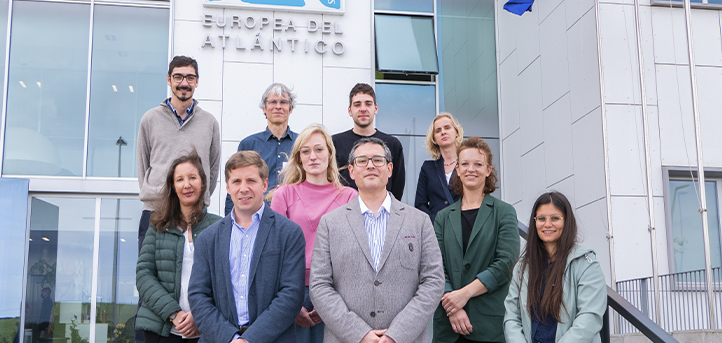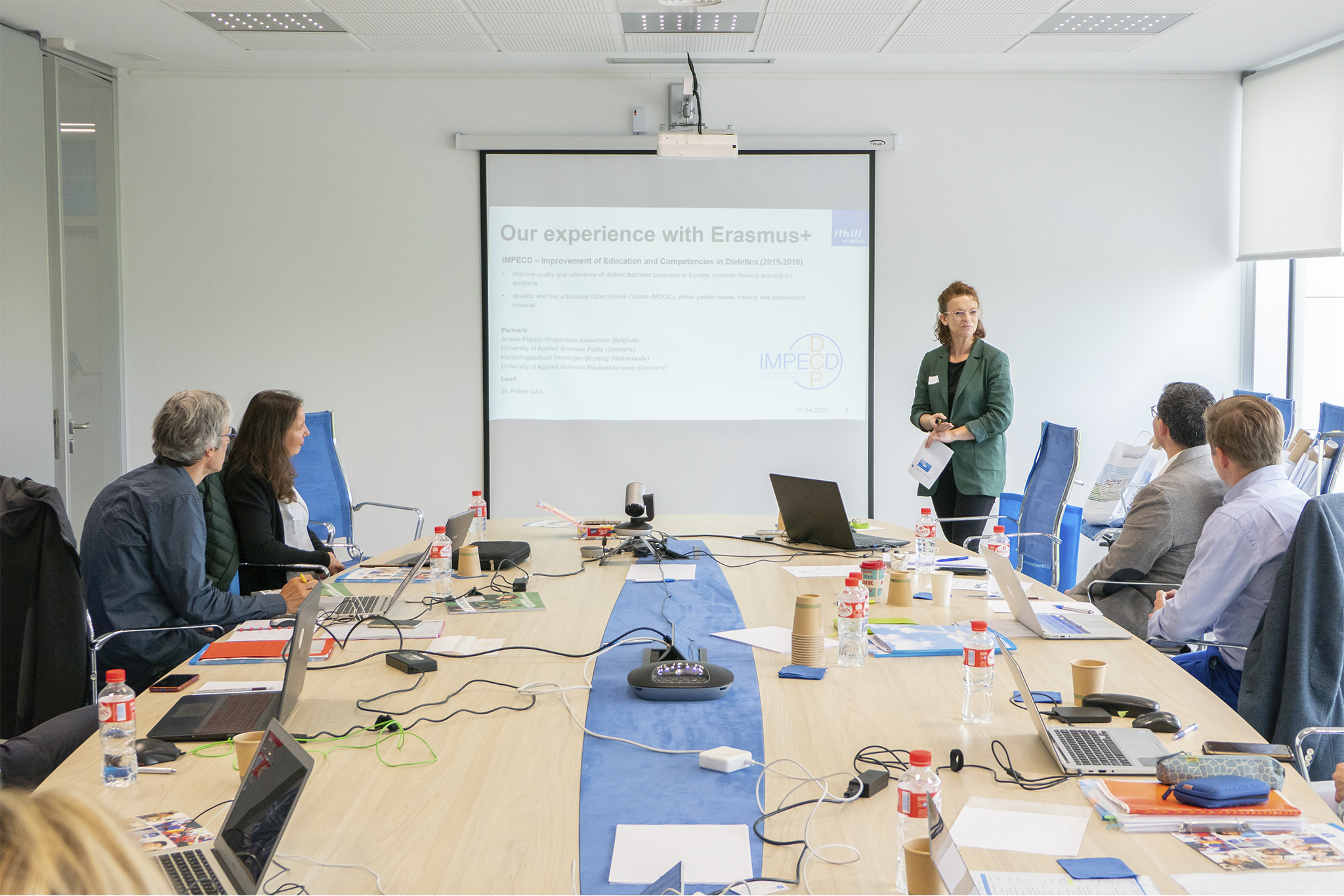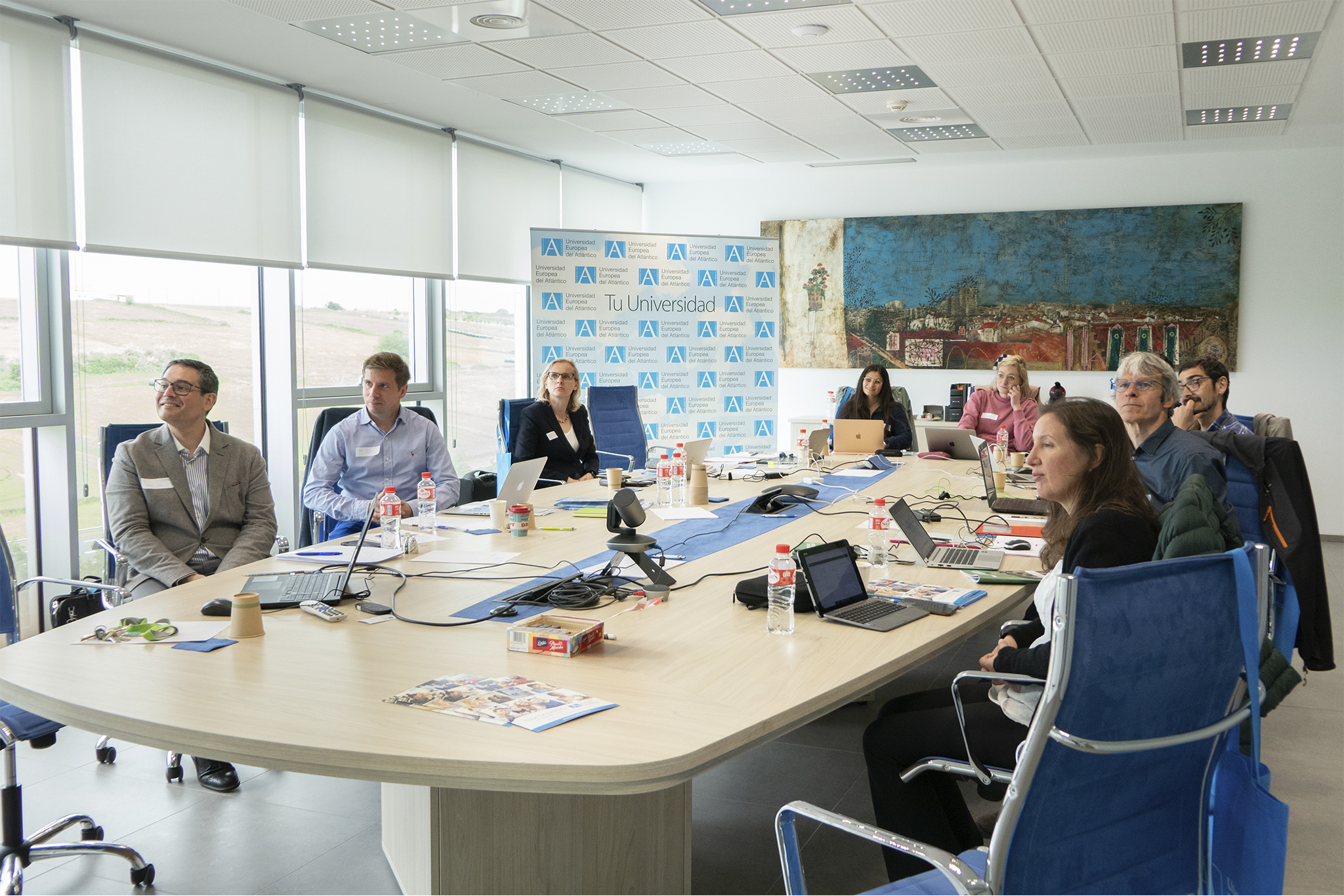The European University of the Atlantic leads the European project Dieting_Lab, which is funded by the Spanish Service for the Internationalisation of Education (SEPIE, Spanish Agency of the European Programme Eramus +).
The project aims to develop a digital platform for nutrition students and dietitians combining experiential learning and community service, in order to bridge the gap of practical competences considered as a critical issue for all health professionals. From a joint action of European Universities, it aims to contribute to improve education in the area of nutrition and dietetics.
Dieting_Lab will be developed over a period of 36 months and has several collaborating partners such as; the University of Valladolid in Spain, the St. Pölten University in Austria, the University of Porto in Portugal, the AP Hogeschool Antwerpen in Belgium and the Jan Kochanowski University in Poland.
On the occasion of the successful implementation of Erasmus+ Higher Education Cooperation Partnerships, KA220, coordinated by the European University of the Atlantic, all project partners were invited to the university campus to participate in the first face-to-face meeting to discuss the main activities.
The meeting was attended by Iñaki Elío, Thomas Prola and Kilian Tutusaus (UNEATLANTICO); Antonio Ferreras (University of Valladolid); Cecilia Morais (University of Porto); Magdalena Lelonek (Jan Kochanowski University of Poland); Alexandra Kolm (St. Pölten University); Joni De Grim (AP Hogeschool Antwerp); Dominiek Timmermans and Axelle Beuselinck (Artesis Plantijn University College of Antwerp). Alexandra Kolm (St. Pölten University); Joni De Grim (AP Hogeschool Antwerpen); Dominiek Timmermans and Axelle Beuselinck (Artesis Plantijn University College of Antwerp). In this sense, the collaborators have been able to get to know the university campus, the facilities and laboratories that UNEATLANTICO has for an optimal theoretical and practical training of all students.
This innovative project has a multidisciplinary team to carry out certain functions and tasks to design an avatar so that students can put into practice their theoretical knowledge on nutrition and dietetics in a safe environment, and then move on to the second part in which they can interact with a real patient through a virtual platform with the supervision of an expert in nutrition and dietetics. In addition, it will be transferred to different European universities with which we collaborate and will give all students in the area of nutrition and dietetics the opportunity to interact with the avatar and later with real patients with supervision. This interaction between European universities will allow the teaching methodology and nutritional approach to be shared.
![]()





